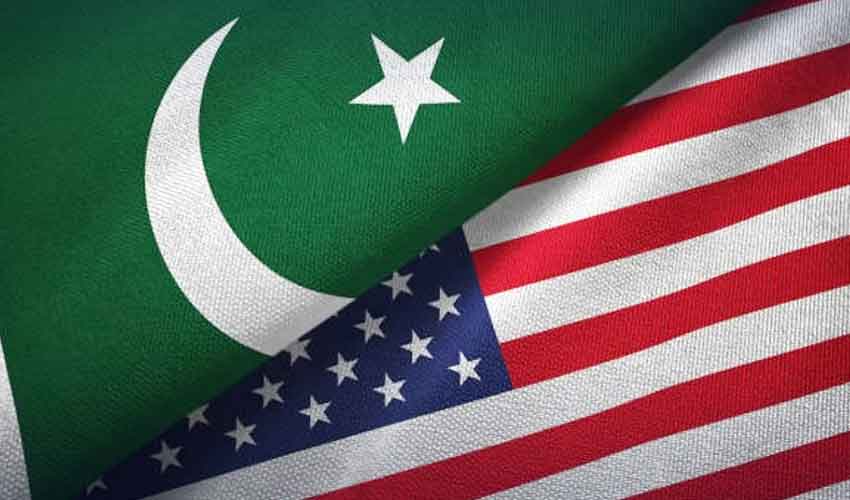Speaking to the Carnegie Endowment for International Peace, Finer said Pakistan has pursued "increasingly sophisticated missile technology, from long-range ballistic missile systems to equipment, that would enable the testing of significantly larger rocket motors."
If those trends continue, Finer said, "Pakistan will have the capability to strike targets well beyond South Asia, including in the United States."
The number of nuclear-armed states with missiles that can reach the US homeland "is very small and they tend to be adversarial," he continued, naming Russia, North Korea and China.
"So, candidly, it's hard for us to see Pakistan's actions as anything other than an emerging threat to the United States," Finer said.
His speech came a day after Washington announced a new round of sanctions related to Pakistan's ballistic missile development program, including for the first time against the state-run defense agency that oversees the program.
The Pakistani embassy did not immediately respond to a request for comment.
Islamabad casts its nuclear weapons and ballistic missile programs as deterrents against Indian aggression and intended to maintain regional stability.
Two senior administration officials, speaking on condition of anonymity, said that the US concerns with Pakistan's missile program have been long-standing and stemmed from the sizes of the rocket engines being developed.
The threat posed to the United States is up to a decade away, said one official.
Finer's comments, the officials said, were intended to press Pakistani officials to address why they are developing more powerful rocket engines, something they have refused to do.
"They don't acknowledge our concerns. They tell us we are biased," said the second US. official, adding that Pakistani officials have wrongly implied that US sanctions on their missile program are intended "to handicap their ability to defend against India."
Finer included himself among senior US officials, who he said repeatedly have raised concerns about the missile program with top Pakistani officials to no avail.
Washington and Islamabad, he noted, had been "long-time partners" on development, counter-terrorism and security.
"That makes us question even more why Pakistan will be motivated to develop a capability that could be used against us."
Pakistan has been critical of warm ties US President Joe Biden has forged with its long-time foe India, and maintains close ties with China. Some Chinese entities have been slapped with US sanctions for supplying Islamabad's ballistic missile program.
It conducted its first nuclear weapons test in 1998 - more than 20 years after India's first test blast - and has built an extensive arsenal of ballistic missiles capable of lofting nuclear warheads.
The Bulletin of the American Scientists research organization estimates that Pakistan has a stockpile of about 170 warheads.
Several experts said Finer's speech came as a major surprise.
"For a senior US official to publicly link concerns about proliferation in Pakistan to a future direct threat to the US homeland - this is a mighty dramatic development," said Michael Kugelman of the Wilson Center think tank.
Sanctions and strategic partnership
During a press conference, US State Department Deputy Spokesperson Vedant Patel highlighted that while Pakistan and the United States remain important partners, Washington remains committed to maintaining the global non-proliferation regime.
Patel explained that sanctions on Pakistani companies involved in missile development are part of broader national security measures. "The sanctions will not affect relations between Pakistan and the United States in other areas," he assured, stressing that the concerns over Pakistan's ballistic missile program are clear and significant.
He further noted that refusing to support long-range missile programs aligns with US policy, underscoring the need to balance strategic partnerships with international security obligations. "The State Department uses sanctions, among other tools, for national security."
Despite the concerns, Patel reaffirmed that the US values its partnership with Pakistan, especially in areas beyond the missile program. The State Department will continue to use all available tools to address security challenges while maintaining collaboration with Pakistan in mutual areas of interest.



























